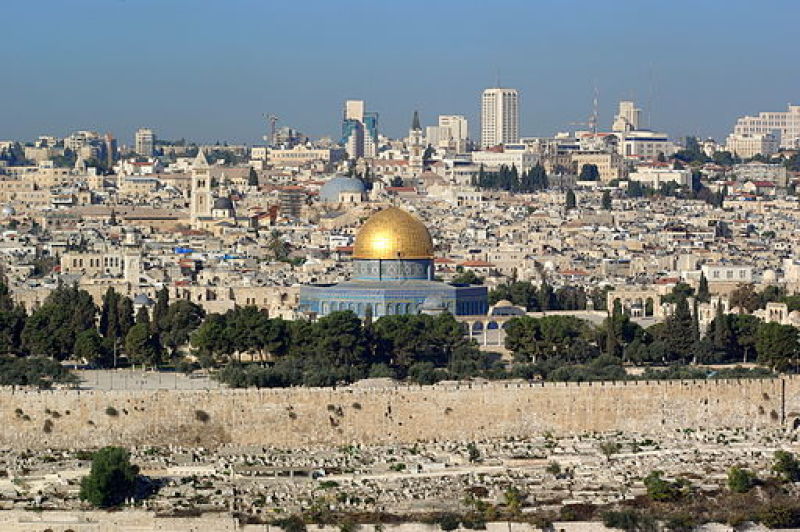

Israelis and Palestinians are involved in tense conflict over East Jerusalem.
The synagogue, which suffered an attack just yesterday, reopened today with increased security.
On Tuesday morning two Palestinian cousins entered a synagogue in Jerusalem and killed five Israelis. The attackers yelled, "God is great!" in Arabic before using their gun, knives, and cleavers on four worshippers.
The three rabbis and worshipper were in the midst of praying when the attack started; their backs were turned to the attackers. Police quickly responded and stopped the attackers, but one of the officers sustained fatal injuries and passed away later that evening.
News of the attack seized global headlines. Leaders, including President Barrack Obama and President Mahmoud Abbas of the Palestinian Authority, issued statements condemning the murders.
"We have to remind ourselves that the majority of Palestinians and Israelis overwhelmingly want peace and to be able to raise their families knowing they're safe and secure," said President Obama after condemning the attack.
Some Palestinians have praised the attack as a defense of the Palestinian holy mosque, referred to by Palestinians as Al Aqsa. The Jewish people refer to this holy cite as Temple Mount.
Some suggest that the violence is cyclic in nature because of the religious connotation and the importance of the East Jerusalem, which Israel claims as their eternal capital. Other neighboring countries view it as occupied territory.
"Somebody needs to think of removing the causes for this, and the causes are rooted within the Israeli policies and practices in East Jerusalem," said Vice President of West Bank's Birzeit University, Ghassan Khatib.
On Wednesday, however, Israeli authorities responded to the recent attacks on its citizens with one of their older and controversial policies: demolition of the Palestinian suspects' homes. This practice that began in the 1960's continued until the 90's and was used again from 2001 to 2004 in order to control Palestinian revolts. The Israeli government claims that it is an effective method to curtail future terrorist attacks.
Even if the suspect is dead, the Israeli government will demolish his or her home, regardless of the family's involvement, or lack thereof, in the terrorist act.
Early on Wednesday, Israeli forces destroyed the home of a Palestinian suspect who is believed to have taken the lives of an Israeli mother and her 3-month old baby last week. The suspect allegedly used a vehicle to commit the homicide.
"Ahead of the latest demolition, family members said they had received notice on Friday to leave the home and had spent days removing furniture and other belongings. Enas Shaludi, the 43-year-old mother of the suspect, said soldiers escorted her and her children to a nearby tent as another group destroyed her apartment," reports the Wall Street Journal.
Human rights groups claim that the demolitions are ineffective, but Israeli authorities disagree.
"A terrorist may be willing to sacrifice his own life, but maybe he will think twice if he knows the homes of his relatives will be destroyed," Shaul Shay, a former official of the Israeli National Security Council, told Wall Street Journal.


















